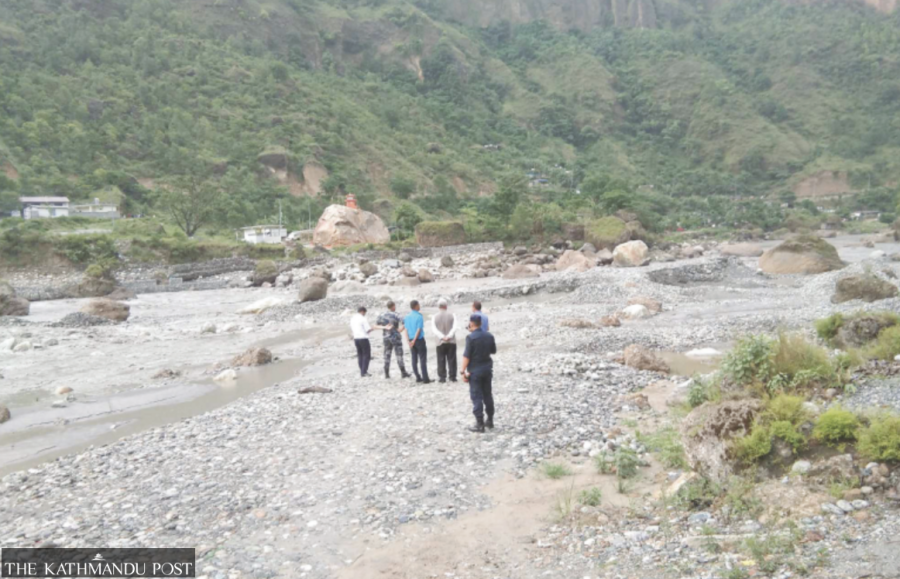Editorial
Mind the mining
Illegal river mining and haphazard road building must stop if we are serious about protecting the environment.
Haphazard road construction in hills and illegal riverbed extraction down in the plains have become all too common in Nepal. Be it the Chure region, Kaligandaki River, or any other hill or river, such activities have robbed these ecologically sensitive places of their natural beauty and richness. This in turn poses a significant threat to wildlife, environment and humans, and the severity of the risks escalates during the monsoon due to frequent floods and landslides. Yet the Nepali state appears largely unbothered.
A recent Post report about the illegal extraction at the Kalakhola area in Baglung Municipality-13, which has put an under-construction “industrial village” and settlements in the area at heightened risk of erosion, captures the disasters such activities can invite. Thanks to haphazard extraction, the Kaligandaki River has reportedly altered its course, increasing the risk of flooding in nearby settlements and affecting the area set aside for industries. This, however, isn’t an isolated case. Every year, hundreds of people lose their lives due to landslides brought about by the construction of feeder roads connected to national highways. Roads constructed just above people’s roofs have also taken a toll on lives and property.
Of course, it is illegal to bulldoze riverbeds and build shoddy roads. In 2020, the Supreme Court banned extraction activities to protect the Kaligandaki and the settlements near the river. Similarly, the Public Road Act (1974), Section 19 prohibits building an access road joined to the public road without permission from the department of roads. Local and provincial governments are mainly responsible for constructing auxiliary roads, while local governments are tasked with monitoring and regulating extraction activities.
But the political support for the illegal extractors, locals’ necessity for road connectivity, and, most importantly, the fact that many local level representatives are contractors have made it difficult to stop these illegal activities at the local level. In many cases, local representatives flout the laws and use their excavators to build connecting roads. As a part of the asare vikas, they spend the bulk of the budget only at the end of the fiscal year. Roads, as a result, are built without proper study, environmental impact and need assessment. Federal apathy has further emboldened the illegal extractors and unscrupulous constructors.
We should be mindful of what negligence and encroachments can do to our natural resources. On the one hand, the government advocates for environmental protection but on the other, it continues to blatantly overlook the issue. This is perhaps because the extraction of riverbed materials has become a lucrative business. For example, as the country is self-sufficient in cement production, with the capacity to produce 17 million tonnes, the authorities perhaps don’t want to lose that point of pride. But people’s health and wellbeing should always come first. The pursuit of development and profits should, as such, not overshadow environmental concerns.
Now that the monsoon is upon us, many places will see illegal road construction and riverbed extraction. In order to forestall more damage to life and property, the first order of business must be to identify areas where unsustainable extraction has taken place as well as the roads that need immediate repair. Contractors and licensed miners should be mandated to follow the environmental impact guidelines, and if they fail, their licences should be revoked. If the government can hold them to account and implement stringent policies, precious lives and natural resources can be saved. Only by being proactive and factoring in long-term sustainability can we save our environment and protect our wellbeing as well as of the generations to come.




 9.7°C Kathmandu
9.7°C Kathmandu














